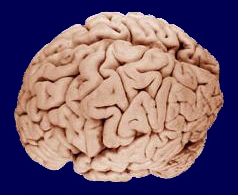Why Our Constitution’s Silence on God Shouldn’t Be Confused with Atheism (Especially by Atheists)

Given the increasingly complacently atheistic tone of many of the BIG THINKERS, I thought I’d introduce some realism about our Constitution’s silence on God. My position will be, of course, somewhere between the “Christian nation” view of some dogmatic evangelical thinkers (such as those who don’t think a Mormon is fit to be president) and the “Godless republic” view of some dogmatic evangelical atheists who claim to revel in the daylight of disbelief.
I think our Constitution’s silence on God is one of our Framers’ debts to the philosopher John Locke. Certainly our Constitution treats people as individuals—or not as members of classes, races, genders, or religions. In that respect, we have a classless citizenry, although far, of course, from a classless society. But Locke himself, as I will explain, thought of our Constitution’s silence of God as a Christian contribution to human self-understanding.
Locke celebrates that breakthrough in egalitarian self-understanding that came with the Christians, the understanding that comes with the discovering of personal inwardness or subjectivity. So while I think Locke was no Christian (unless you want to call a Socinian or anti-Trinitarian a Christian), he thought of himself as providing arguments and evidence for the fundamental Christian insight into personal reality. Christianity established the principle of the limitation of government by personal freedom. And Locke thought that, with his discovery of personal identity, that he could prove that individuals are both less and more than citizens. They consent to government to protect their interests as self-consciously needy and vulnerable beings with bodies without surrendering their freedom for conscientious self-determination in pursuit of happiness.
For Locke, as for the Christians, both the individual and the church are autonomous—or free from political coercion to determine the truth about the free being’s duties to his or her personal Creator. Locke could defend that conclusion, let me emphasize, without believing that most of what any particular church taught is true. He was highly doubtful that there is a living and giving personal God on which free beings could rely for love and security, and he taught individuals not to trust primarily in God, but in themselves. But he wasn’t so doubtful about personal freedom as, from a natural view, a mystery that left room for belief in a Creator.
Consider that our Christians and our Lockeans—inspired by the idea that the free individual or person—ally against the classical republicans—insofar as they think of people as basically citizens or part of a political community (or city fodder). Our Christians and our Lockeans agree that the emphatically Catholic Chesterton is right that America is a home for the homeless—a place for citizens who think of themselves as so equally unique and irreplaceable that they are far from merely citizens. In America, the homeless can be as at home as the homeless can be in any political community, precisely because that community does not compel them to deny what they really can know about themselves.
Christians, St. Augustine said, were often hated because they, on behalf of both the truth and their faith, had to dissent from the religious legislation of their political communities. They refused, like Socrates, to either believe in or worship the gods of their cities. From the classical, political view, the Christians actually seemed liked atheists. In our country, our Christians and our Lockeans have tended to ally against the classical republican idea of civil theology or, as Lincoln once put it, political religion.
The most noble and truthful Lockean interpretation of the Constitution of 1787′s silence on God cis that it’s anti-civil theological. It can be criticized for not placing our country “under God,” or for liberating political will from divine limits—for turning man into God. Or it can be praised for limiting the realm of political will, for freeing creatures and Creator from political domination for being who they truly are. Our Constitution, from the latter view, presupposes that the Christian view of the person and the God in whose image he or she is made is true. Our political leaders have always been free to express their faith in God, but not to turn it into legislation. For Christians, as John Courtney Murray says, American freedom is freedom for the church as an organized social entity with autonomous moral weight, and Locke, finally, wouldn’t think of disagreeing.
God, for Locke, may well exist. Opinions about our duties to our Creator, as Madison, the most purely Lockean of our Founders thought, are a personal or private matter. God is not to be put to degrading political use, and so “civil theology” is not to direct or inhibit the natural—and inevitably social—human inclination toward theological concern.





